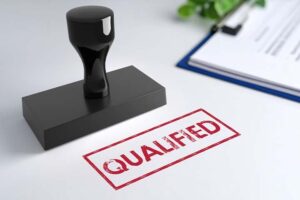Table of Contents
In today’s world of increasing energy costs and environmental concerns, it is essential to ensure that our household appliances like gas boilers and central heating systems run in the most efficient way possible. Air Source Heat Pumps play a crucial role in providing efficient heating solutions among these appliances. Understanding the basics of heat pump efficiency and knowing how to maximize it can not only help save on energy bills but also reduce our carbon footprint. UK Government provides free air source heat pump to homeowners.
Understanding the Basics of Heat Pumps Efficiency
The efficiency of a heat pump is measured by its coefficient of performance (COP), defined as the ratio of the heat transfer rate to the work input rate. A higher COP indicates a more efficient heat pump, as it can transfer a more significant amount of heat for the same amount of electrical energy consumed.
Efficiency is crucial for heat pumps because it directly affects energy consumption and comfort levels. A highly efficient heat pump consumes less electricity and delivers consistent heating or cooling throughout the year. On the other hand, an inefficient heat pump may result in higher energy bills and an uncomfortable indoor environment.
By maximizing heat pump efficiency, homeowners can save significant costs while reducing their environmental impact. Additionally, a properly functioning and efficient heat pump requires less maintenance and is less prone to breakdowns, ensuring peace of mind and long-term reliability.
What is a Heat Pump?
Air source heat pump uses to transfer heat energy from one place to another. It consists of two main components: the indoor and outdoor units. The indoor unit contains the evaporator coil, compressor, and fan, while the outdoor unit houses the condenser coil and fan.
During the heating mode, the outdoor unit extracts heat from the outside air and transfers it to the indoor unit, where it is released into the living space. Conversely, during the cooling mode, the indoor unit extracts heat from the indoor air and transfers it to the outdoor unit, dissipating it into the atmosphere. Heat pumps are highly versatile and can be used in various residential, commercial, and industrial applications. They are trendy in regions with moderate climates, where the temperature fluctuations are not extreme.
The Importance of Heat Pump’s Efficiency
Efficiency is crucial for heat pumps because it directly affects energy consumption and comfort levels. A highly efficient heat pump consumes less electricity and delivers consistent heating. On the other hand, an inefficient heat pump may result in higher energy bills and an uncomfortable indoor environment.
By maximizing heat pump efficiency, homeowners can save significant costs while reducing their environmental impact. Additionally, a properly functioning and efficient heat pump requires less maintenance and is less prone to breakdowns, ensuring peace of mind and long-term reliability.
Key Factors Affecting Heat Pump Performance
Several factors can impact the efficiency of a heat pump. These include the system’s size and design, the installation quality, the building’s insulation and sealing, and the climate in which the heat pump operates. An oversized heat pump may cycle on and off frequently, resulting in energy wastage and reduced efficiency.
The quality of installation also plays a important role in heat pump efficiency. Improper installation can lead to air leaks, adequate airflow, and efficient operation. Hiring a qualified and experienced professional installers must ensure the heat pump is installed correctly and all components are properly connected and sealed.
The insulation and sealing of the building are crucial for maximizing heat pump efficiency. A well-insulated and properly sealed building minimizes heat loss or gain, allowing the heat pump to operate more efficiently. Insulation materials such as fiberglass, cellulose, or spray foam can reduce heat transfer through walls, floors, and roofs.
The heat pump’s climate can also affect its efficiency. Heat pumps are most efficient in moderate climates, where the temperature difference between the indoor and outdoor environments is not extreme. In colder climates, additional heating sources may be required to supplement the heat pump’s capacity and maintain desired indoor temperatures.
Types of Heat Pump
The type of heat pump installed in a home significantly impacts its efficiency. There are three main types of heat pumps: air-source, ground-source (geothermal), and water-source (hydrothermal). Each type has advantages and disadvantages regarding efficiency, installation cost, and suitability for different climates.
Air Source Heat Pumps
Air-source heat pumps are the most common type and are highly efficient in moderate climates. They extract heat from the ambient air and are relatively easier to install and maintain.
Ground Source Heat Pumps
Ground-source heat pumps, utilize the ground’s stable temperature for heat transfer and are more efficient but it’s costly to install. Water-source heat pumps function similarly to ground-source heat pumps but use a water source, such as a pond or well, for heat exchange.
Installation and Sizing
A heat pump’s proper installation and sizing are crucial for achieving energy efficiency. A poorly installed or improperly sized heat pump can result in reduced efficiency, frequent breakdowns, and increased energy consumption.
It is essential to consult a professional surveyor who can assess the heat load requirements of your home and recommend the appropriate size and installation strategy. Properly insulating walls, floors, and ceilings can enhance the heat pump’s efficiency by minimizing heat loss.
Maintenance and Servicing
Regular maintenance and servicing are essential for prolonging the lifespan and maximizing the efficiency of any heating equipment, including heat pumps. A well-maintained heat pump performs optimally and consumes less energy.
Some key maintenance tasks include cleaning or replacing air filters, inspecting and cleaning coils, lubricating fan motors, and checking refrigerant levels. It is recommended to schedule annual maintenance visits with a qualified HVAC technician to ensure that your heat pump is operating at peak efficiency.
Steps to Improve Heat Pump Efficiency
Now that we’ve covered the key factors affecting heat pump efficiency. Some actionable steps homeowners can take to improve their overall performance.
Regular Cleaning and Maintenance
Regularly cleaning and maintaining your heat pump is instrumental in ensuring its efficiency. This includes cleaning or replacing air filters every 1-3 months, checking and cleaning the outdoor unit, and inspecting and cleaning the indoor coils. Keeping the heat pump clean allows for better airflow and heat transfer, improving efficiency. Please pay attention to any warning signs, such as unusual noises or reduced airflow, and promptly address them by contacting a professional HVAC technician.
Proper Thermostat Settings
Optimizing the thermostat settings can help maximize heat pump efficiency. During the heating season, it is recommended to set the thermostat to a moderate temperature, typically around 68-72°F (20-22°C), to achieve a comfortable indoor environment without straining the heat pump.
During the cooling season, setting the thermostat to a higher temperature, such as 75-78°F (24-26°C), can enhance energy savings. Additionally, using programmable thermostats or smart thermostats allows for better control and automation, ensuring efficient operation based on your daily routine.
Insulation and Sealing
Proper home insulation and sealing can significantly impact heat pump efficiency by minimizing heat loss or gain. Improperly insulated attics, walls, or crawlspaces can generate higher energy consumption as the heat pump struggles to compensate for the heat lost or gained through these areas.
Sealing gaps or cracks around windows, doors, and ductwork can also prevent air leakage, allowing the heat pump to operate more efficiently. Homeowners can consult an energy auditor or insulation specialist to assess and improve their home’s insulation and sealing.
Troubleshooting Common Heat Pumps Problems
Despite taking all the necessary steps to ensure heat pump efficiency, occasional problems may still arise. Awareness of common heat pump problems and their troubleshooting measures can help homeowners address these issues promptly and minimize disruptions.
Heat Pump Not Heating Properly
There could be several reasons your heat pump is not heating as it should. First, check that the thermostat is set to the heating mode and that the temperature setting is appropriate. Also, ensure that the air filter is clean and not obstructed, as a clogged filter can restrict airflow and impair heat transfer. Suppose if these checks do not resolve the issue. In that case, it is advisable to contact a professional HVAC technician to inspect the heat pump, diagnose the problem, and perform any necessary repairs or adjustments.
Unusual Noises from the Heat Pumps
If you notice any unusual noises, such as grinding, squealing, or rattling, coming from your heat pump, it could indicate underlying issues. Loose or worn-out components, faulty motors, or damaged fan blades may cause noises like these. In such cases, it is best to shut off the heat pump immediately and contact a technician to diagnose and resolve the problem. Ignoring unusual noises can lead to further damage and more expensive repairs.
High Energy Bills Despite Low Usage
Unexpectedly high energy bills, even with minimal heat pump usage, can cause concern. This issue can occur for various reasons, including inefficient equipment, faulty controls, or air leakages.
If you suspect that your heat pump is consuming more energy than it should, it is advisable to have an professional surveyor conduct an energy audit or efficiency assessment. They can identify underlying issues and recommend appropriate measures to improve energy efficiency and reduce utility bills.
Conclusion
Ensuring the efficient operation of your heat pump is essential for both cost savings and environmental sustainability. Homeowners can enjoy comfortable indoor environments while minimizing their energy consumption and carbon footprint by understanding the basics of heat pump efficiency, addressing key factors that affect it, and implementing steps to improve its performance. Check Your Eligibility Online If you are eligible for heat pump grant.




